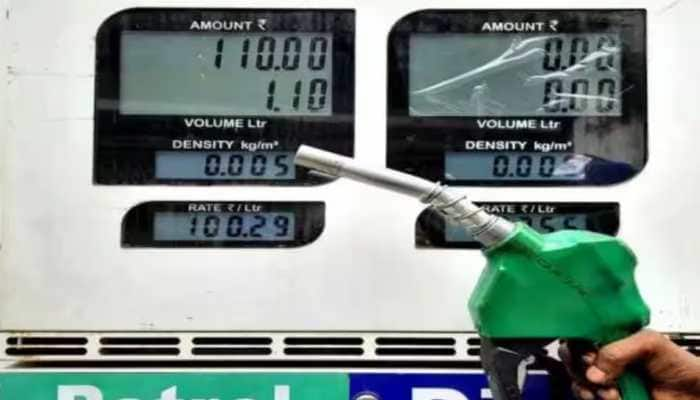Bharat Bandh today to hit banking services; steps taken to prevent untoward incidents
As the Bharat Bandh call has been announced by 10 trade unions along with six bank unions, the strike will have an impact on banking operations, including ATM services.
Trending Photos
) Representational Image: ZeeNews
Representational Image: ZeeNews New Delhi: In view of the nationwide strike call given by trade unions on Wednesday (January 8), the Centre, as well as state governments, have taken requisite measures to maintain law and order and prevent untoward incidents during the day-long all-India shutdown. Alert has also been issued in Uttar Pradesh by DGP headquarters in the wake of the strike call.
As the Bharat Bandh call has been announced by 10 trade unions along with six bank unions, the strike will have an impact on banking operations, including ATM services. Trade unions have claimed that about 25 crore people would participate in the nationwide strike, which has been called to protest against the Centre's recent banking reforms and policies.
Among demands put forward by the trade unions include a raise in the minimum wage to Rs 21,000-Rs 24,000 per month, stopping the privatisation of public sector undertakings, and the repeal of the Citizens Amendment Act, National Register for Citizens (NRC) and National Population Register (NPR).
The bank unions have also raised objections to the proposed merger of 10 PSU banks to create four entities as announced by Union Finance Minister Nirmala Sitharaman in August 2018.
Earlier on January 2, Bank Employees Federation of India (BEFI) reportedly said, that Union Labour Minister Santosh Kumar Gangwar had invited the leaders of the central trade unions to inform them that the government has been taking all the steps for the welfare of workers.
In September 2019, the trade unions including INTUC, AITUC, HMS, CITU, AIUTUC, TUCC, SEWA, AICCTU, LPF, UTUC along other sectoral independent federations and associations resolved after adopting a resolution to go on a nationwide strike on January 8, 2020.
The all-India strike call is expected to draw a huge impact as about 60 student organisations and elected representatives from a few universities have also extended their support to the bandh to raise voice against increased fee structure and commercialization of education.
The trade unions have also flayed the JNU violence and similar incidents in other university campuses expressing their solidarity with students and teachers across the country.
In Karnataka, the Bengaluru police stepped up security and heightened vigil to maintain law and order and prevent untoward incidents.
"The trade unions and others will not be allowed to take processions or disrupt normal life, including taxis, bus and metro rail services, suburban trains, opening up of shops, markets, malls, theatres, hotels, and eateries," Bengaluru Police Commissioner Bhaskar Rao told reporters in Bengaluru.
Thousands of workers from across the sectors, including women in the garment industry will join the shutdown and stage demo against the state and central government in support of their demands and against anti-labour laws.
"We want the state and central governments to raise the minimum wage to Rs 24,000 per month as cost of living and expenses on basic needs such education, health and housing have become prohibitive," AITCU leader Ananth Subbarao told IANS.
Several state-run bank employees, excluding those of State Bank of India (SBI) are set to participate in the shutdown to protest against the merger of banks and closure of their branches across the country.
Agricultural markets, wholesale market yards, Peenya industrial area and hundreds of small and medium enterprises will remain shut, affecting daily wage workers and employees. Essential supplies, including milk, vegetables, commodities, hospitals, medical shops, and provision stores are exempted from the shutdown to avoid affecting normal life.
The state government has, however, invoked the Essential Services Maintenance Act (ESMA) to prevent disruption of public transport and emergency services.
In Odisha, the state government on Tuesday asked the district collectors and Director General of Police (DGP) to take preventive measures to maintain law and order.
"It is apprehended that they may stop vehicular traffic, rail traffic and close down business establishments and picket before government offices, banks, and educational institutions, etc.," Home department special secretary Santosh Bala reportedly stated in a letter.
Meanwhile, the West Bengal government on Monday issued a directive to all the state government offices that they remain open on the day. A memorandum issued by Finance (Audit) Department of West Bengal government said, "In view of call given by different trade unions and others for a 24 hours All India Industrial strike on January 8, it has been decided that all state government offices including those provided grants-in-aid by state government shall remain open and all the employees shall report for duty on that date."
The memorandum said no casual leave for absence either in the first half of the day or in the second half or for the whole day nor any other leave shall be granted to any employee on the said date.
(With Agency Inputs)
Stay informed on all the latest news, real-time breaking news updates, and follow all the important headlines in india news and world News on Zee News.
Live Tv







)
)
)
)
)
)
)
)
)
)
